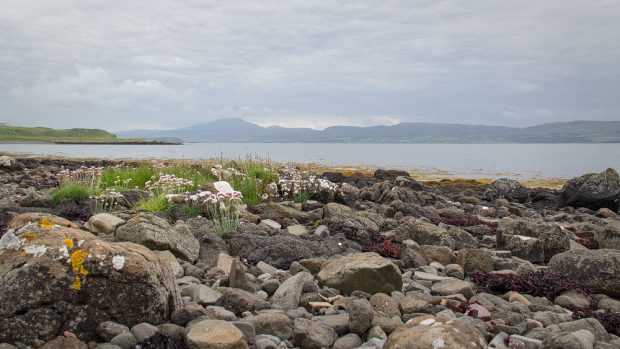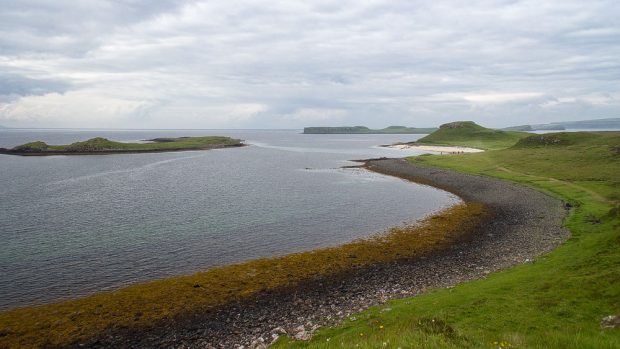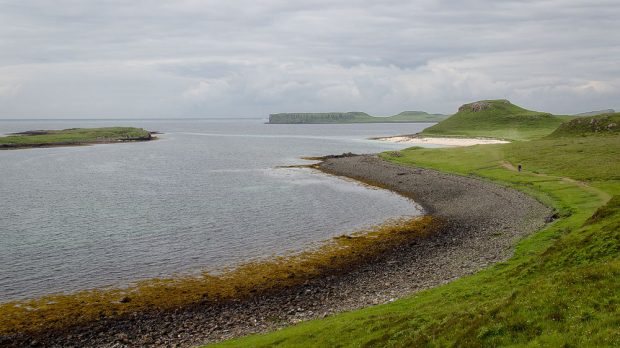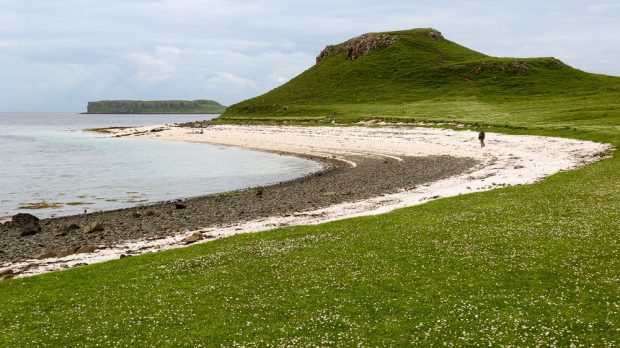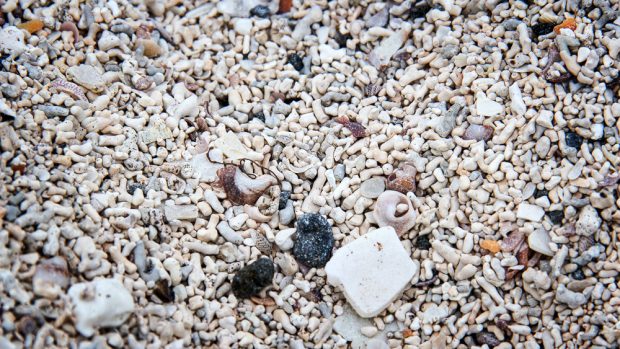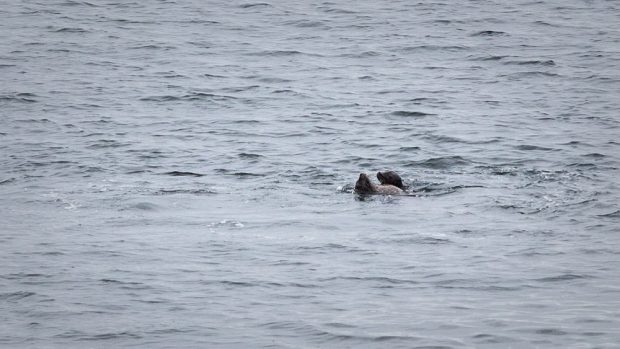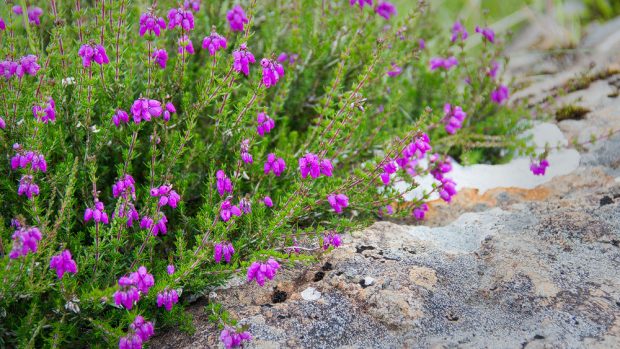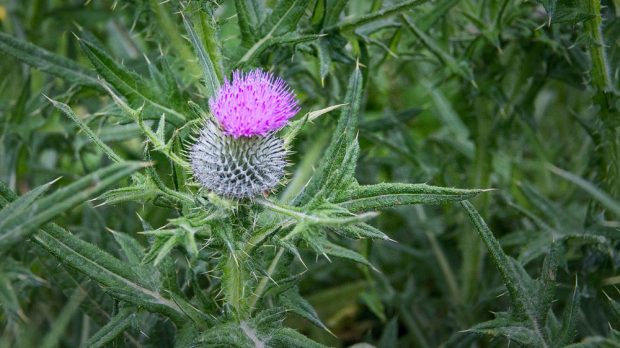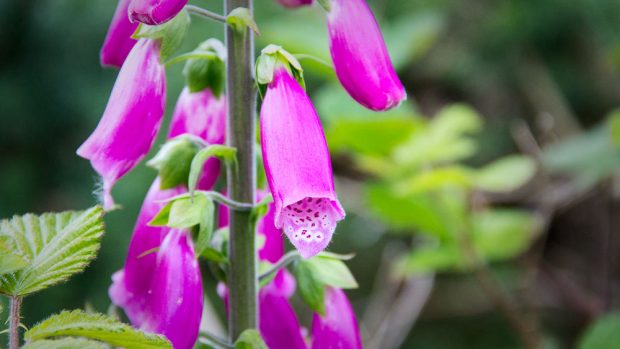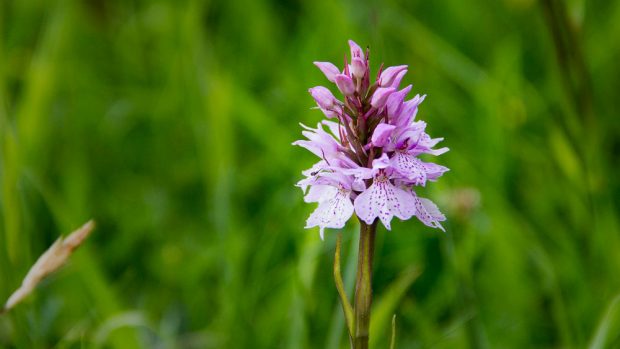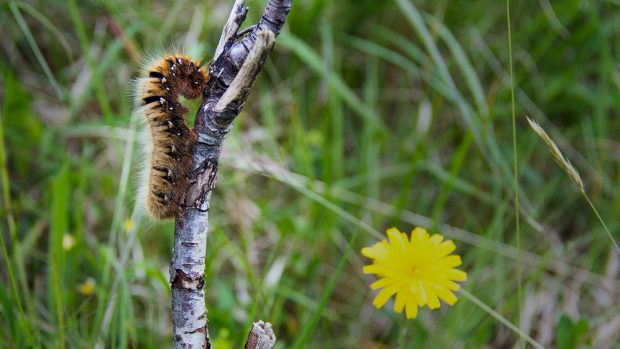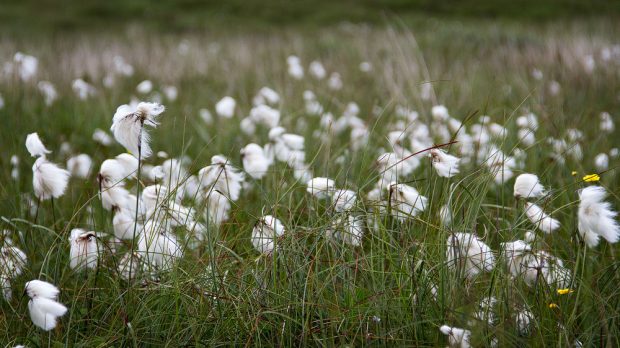The Isle of Skye is rather known for cliffs and mountains. But at Loch Dunvegan lies a very special sandy beach, which can only be reached by walking: it is the Coral Beaches at Claigan.
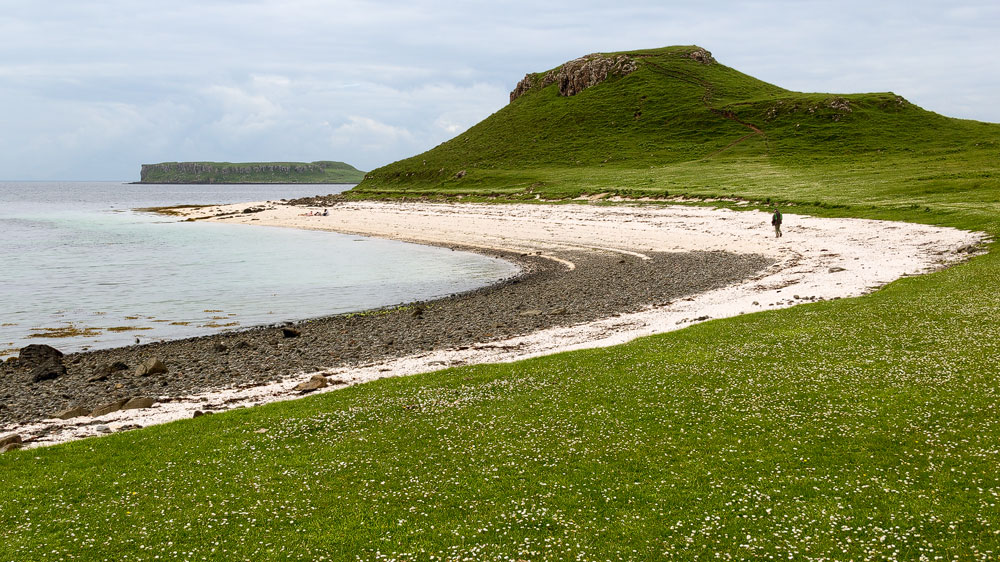
The Isle of Skye has around 500 kilometres of coastline to offer. But sandy beaches are few and far between. Perhaps still Talisker Bay or Glenbrittle with its dark sands. But bright sandy beaches are only to be found here, only at Coral Beaches near the village of Claigan.
The Coral Beaches are on Loch Dunvegan, not far from Dunvegan Castle. To reach it, you have to leave the car and go on a short walk. You’ll walk about a mile and a half through a protected nature reserve before you see the white coastline ahead.
But already this hike is very demanding. As by looking to the left and to the right of the path, one finds a flora in a flowering variety. Foxgloves, various orchids, cotton grass, heather and thistles line the path.
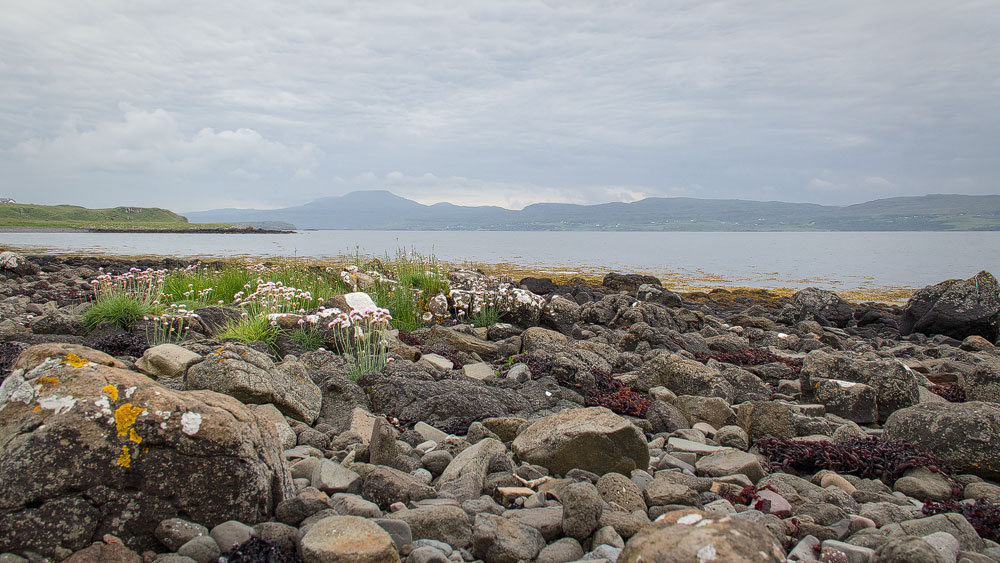
Before you even reach the actual sandy beach, you come across the shoreline with thick stones. From here, there is a view into Loch Dunvegan, which cuts deep into the land. A wonderful view inland and the opposite coastline opens up.
But you should not stay too long here, there is still some walking to do. Passing free-roaming cows and crossing a small stream, the path goes over a hill. At the top the view to the Coral Beaches itself opens up. The beach nestles gently into a grassy landscape, with the small mountain of Cnoc Mòr a’ Ghrobain rising in the background. Further offshore, you can make out the islands of Isay and Mingay. Just a few more steps down the slope and you can put your feet on the sand – and if you dare, even in the shallow surf.
By the way, it is allowed to let one’s gaze wander over the water for a longer time. Because playful seals appear here again and again, which romp together.
On the beach itself, it is worthwhile to linger in good weather and perhaps walk all the way to the back before turning around and returning to the parking lot.
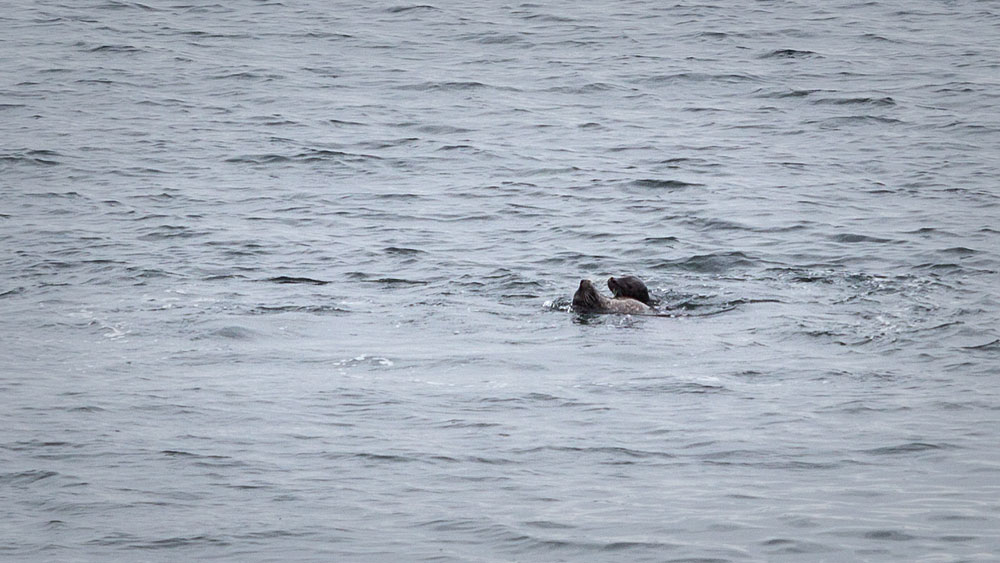
Knowledge: Why it’s called Coral Beaches
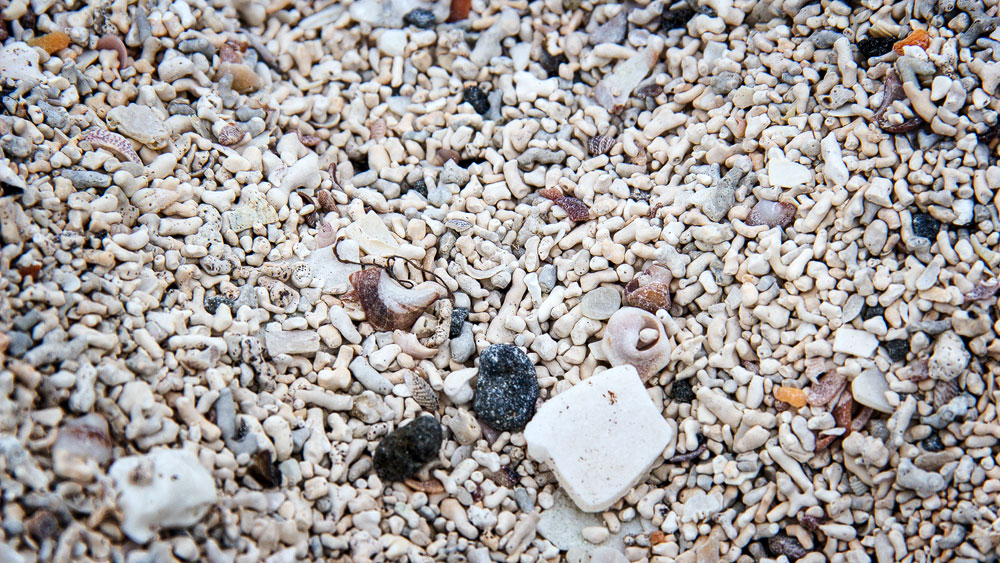
What the name is all about becomes apparent when you pick up a handful of sand on the beach and take a closer look. It is not a typical sand. Instead of fine grains, you’ll find strange shapes that actually resemble coral structures. So for a while it was thought that the beaches were formed from pieces of coral.
But this – as we know today – is wrong. Because instead of corals, they are bleached and dried pieces of algae. However, this does not make the Coral Beach less beautiful to look at.
Tip: Dunvegan Castle on the way back
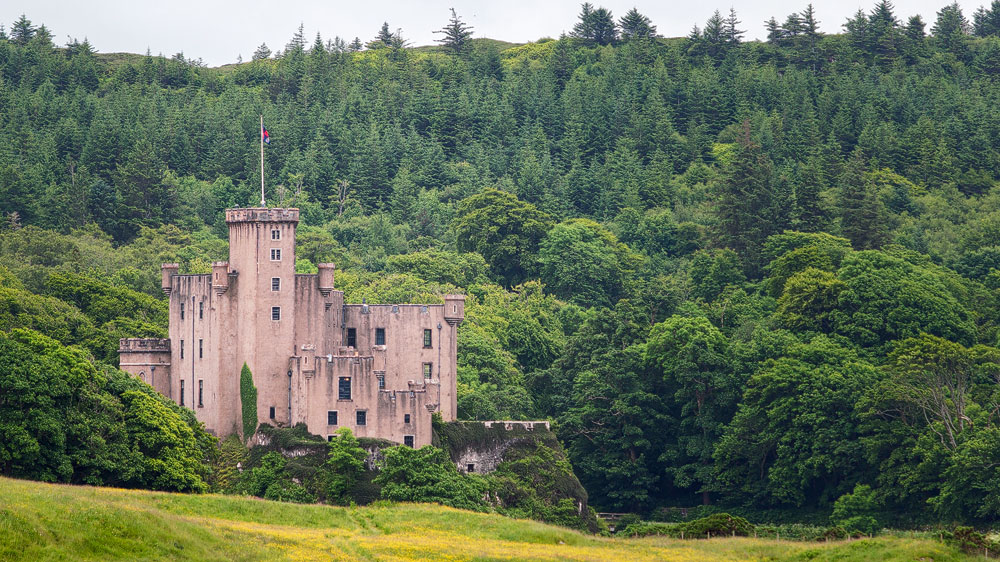
On the way back, after a few miles, there is an interesting view of Dunvegan Castle from the side. This perspective is not yet very well known.
Personal note: A bit of sitting on the mountain
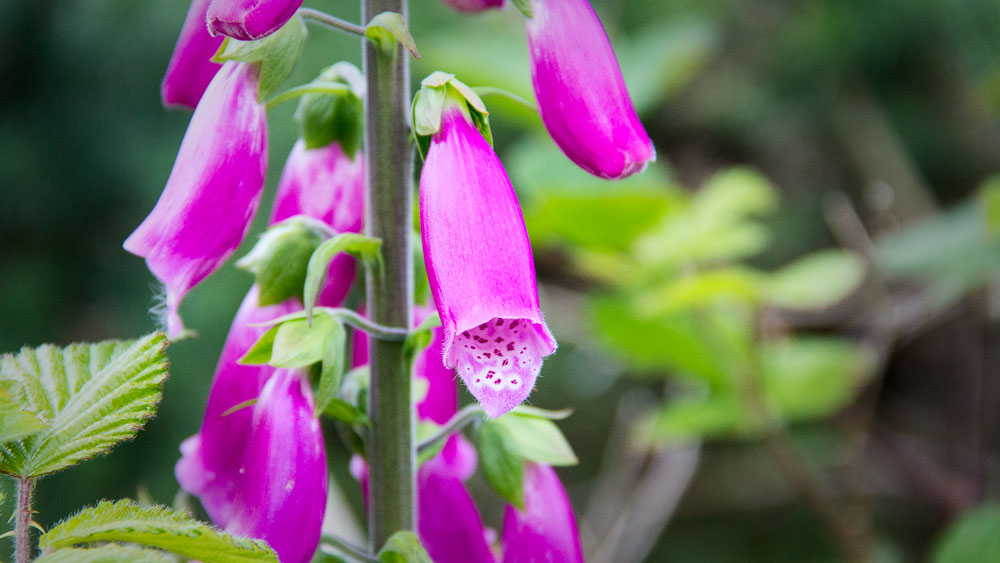
I did have a bit more time on the beach, as other members of our little group wanted to linger here. I found a nice spot on the hill south of the beach. From there you can look very well over the water to see seals. At the same time, you have a nice view of the beach.
I was also impressed by the nature along the way. Together we took some nice shots of plants here.
Directions:
With sat nav: For once, the postcode seems to be of no use in this case. So it usually helps to enter the town of Claigan and select town centre there. However, I could only test this on a sat nav. Shortly before the destination, however, you must then pay attention to the signs to the beach.
Without Navi: Destination is first the place Dunvegan. Two roads lead there: the A863 from the south of Sligachan and the A850, which branches off the A87 on the route between Portree or Uig. Once in Dunvegan, first follow the signs to the Castle, continue past it along the road. Attention: Shortly after the castle the road is much less developed, but still well passable. About six kilometres or 3.5 miles the road goes on and on, partly with wonderful views over Loch Suardal and Loch Corlarach. Keep going until, after a sharp left turn, you come to a T-junction where there are already several signs for the Beaches. Park at the car park at Claigan. Continue on foot along the path. Attention: If in doubt, always keep a little to the left.
